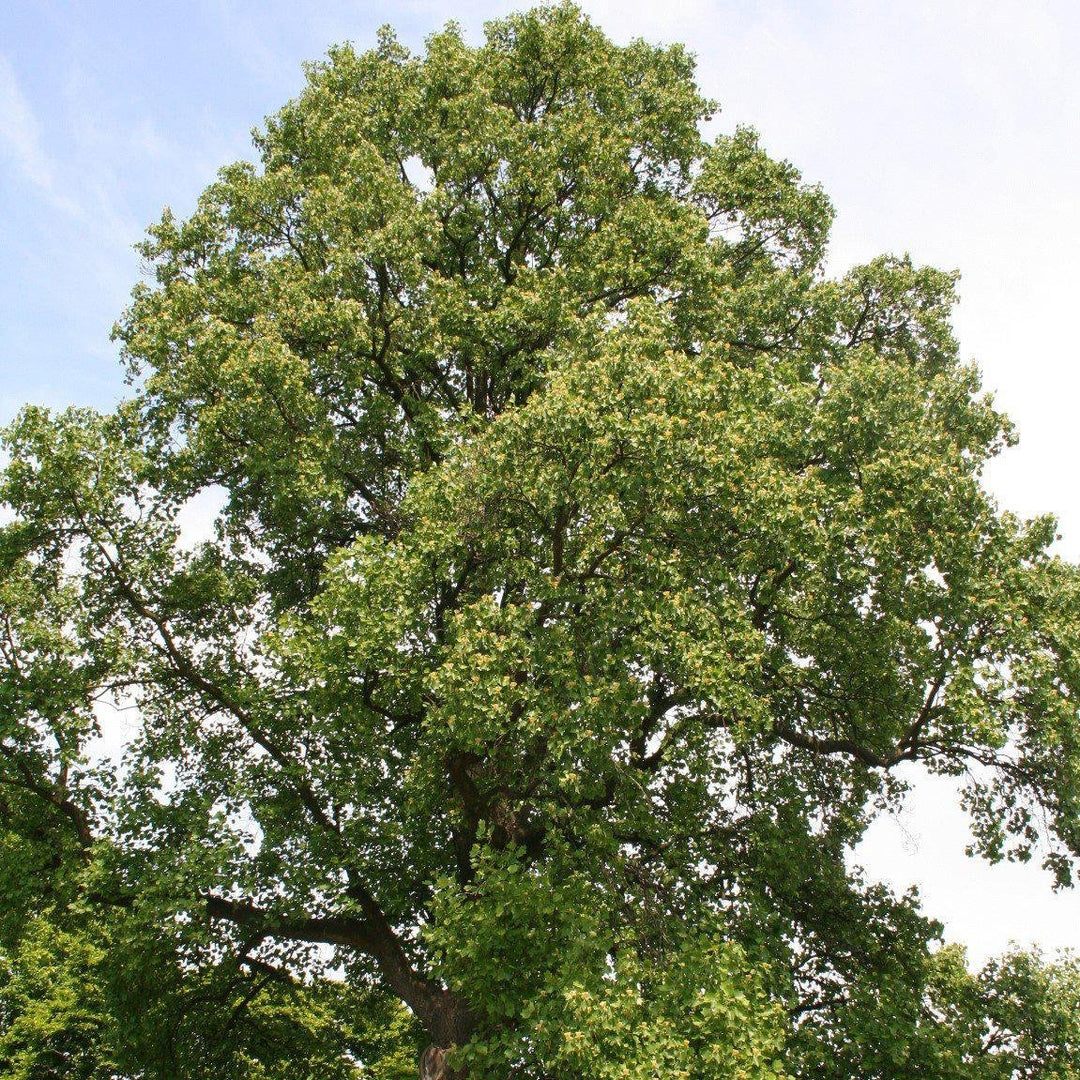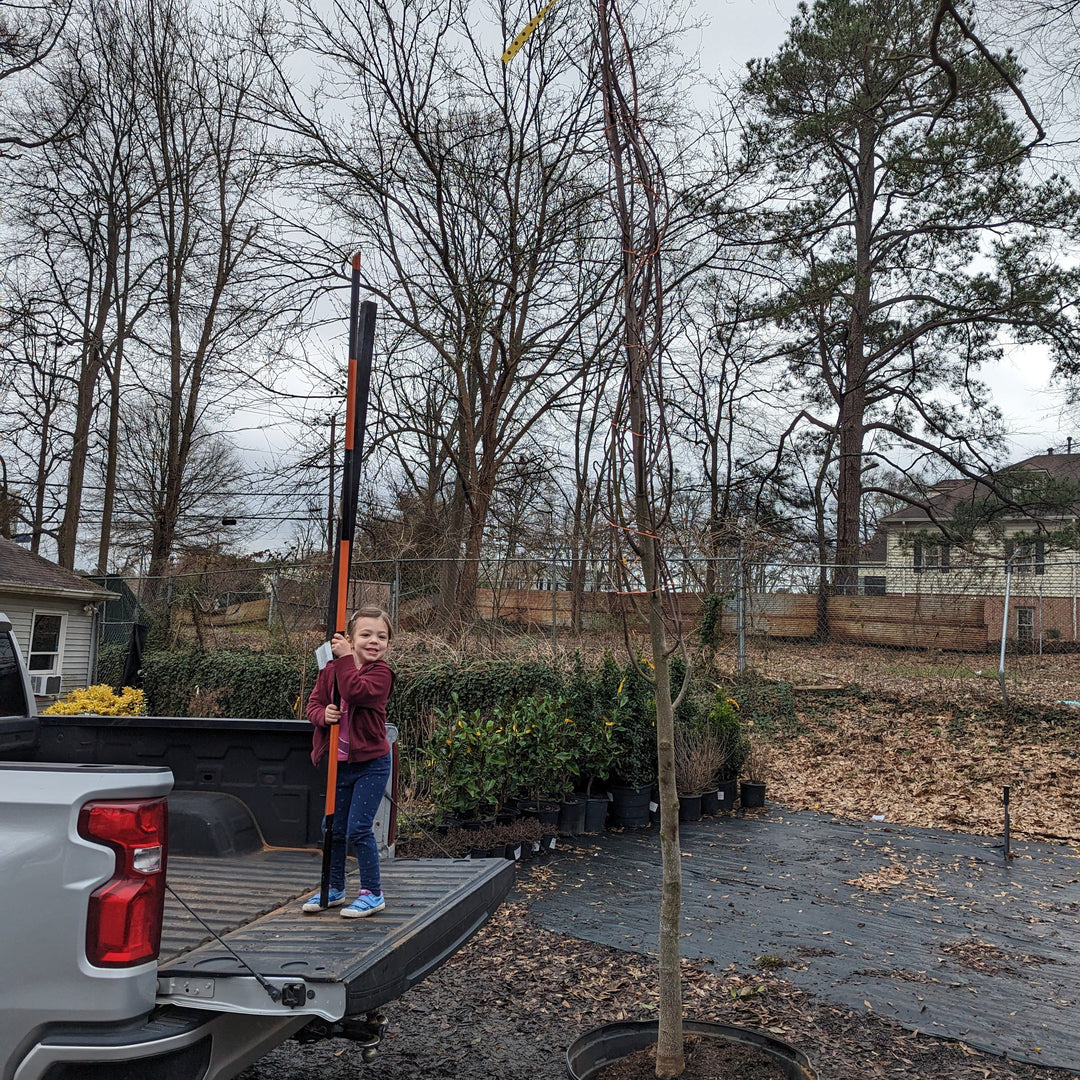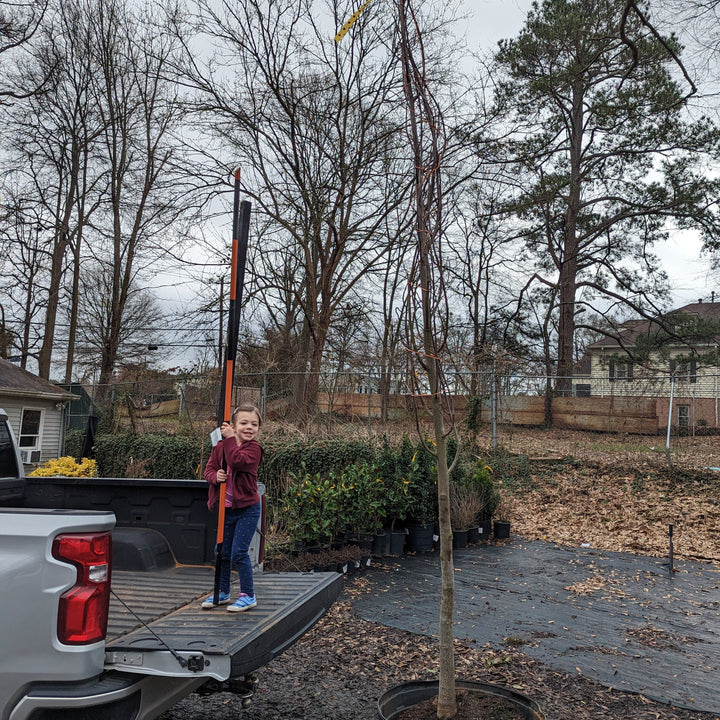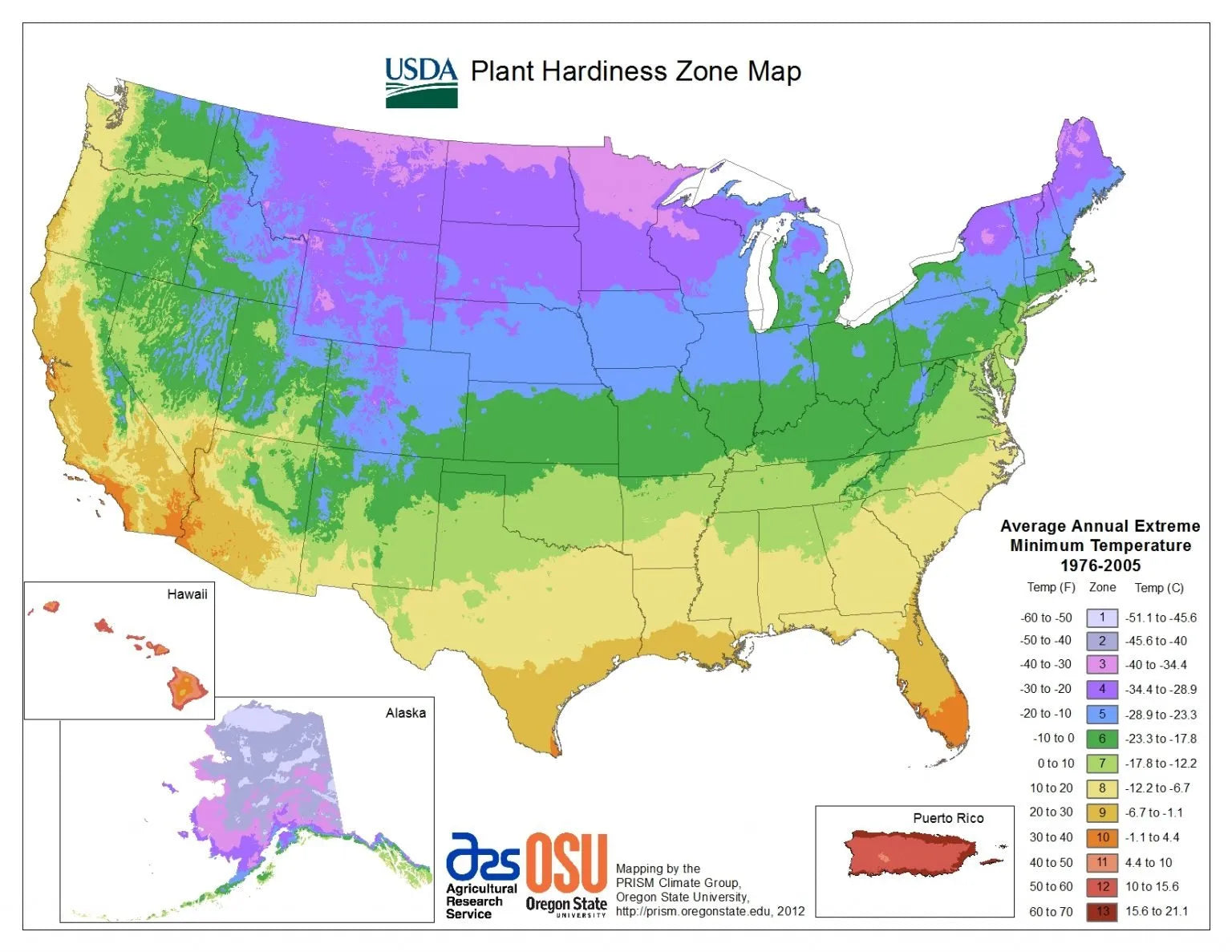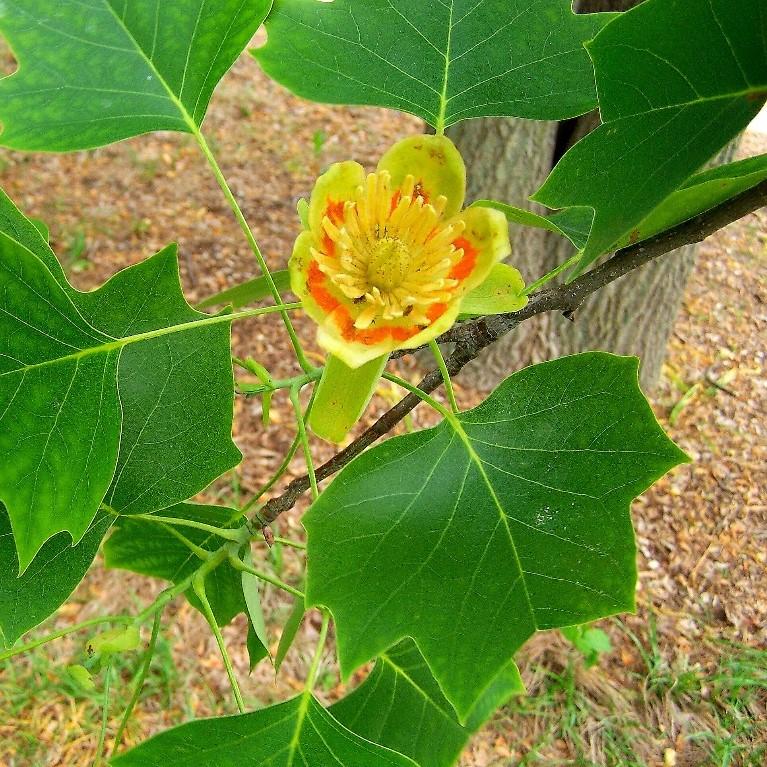Tulip Poplar Tree
Liriodendron tulipifera
- In stock, ready to ship
- Backordered, shipping soon
- Locally Grown
Tulip Poplars are known for their tall and straight trunks, reaching heights of up to 90 feet (27 meters) or more. They have distinctively shaped leaves that resemble tulip flowers, hence the name. The leaves are bright green and turn golden yellow in the fall, creating a stunning display of color.
In addition to its beautiful foliage, the Tulip Poplar produces unique flowers. The flowers are yellow-green with orange markings and are shaped like tulips, hence the name "tulipifera." These flowers bloom in late spring or early summer and are a favorite among pollinators, such as bees and butterflies.
Tulip Poplars prefer full sun to partial shade and well-drained soil. They are relatively low-maintenance trees and can tolerate a wide range of soil conditions. However, they do require regular watering, especially during dry periods.
|
Type: |
Tree |
|
Origins: |
Eastern N. America; GA Native |
|
Height: |
40' - 90' |
|
Spread: |
30’ - 50' |
|
Spacing: |
40' |
|
USDA Hardiness Zone: |
4 - 9 |
|
Culture: |
Full Sun |
|
Bloom Color: |
Yellow |
|
Season of Interest: |
Spring, Fall |
MAINTENANCE NEEDS: Low Maintenance. Water Regularly. Watch for aphids and scale, as well as wild, mold, mildew or canker. Susceptible to limb breakage in heavy ice/snow or high winds.
LANDSCAPE USES: Accents or Group Plantings, Borders, Shade Garden, Privacy Screen.
COMPANION PLANTS: Flowering Cherry, Chinese Pistachio, Cedar
IMAGE: Jean-Pol GRANDMONT, Liriodendron tulipifera (arbre) - Laeken, CC BY 3.0
IMAGE: Bruce Marlin, Liriodendron tulipifera, CC BY-SA 3.0
IMAGE: Dinkum, Liriodendron tulipifera 3, CC0 1.0
Hahira Nursery takes pride in growing high-quality, fresh, healthy plants and ensuring they are delivered safely, on time, and with little to no damage so they are ready to be planted.
Despite all of our best efforts, once the plants have left our nursery, there are many variables outside of our control that can cause plants, flowers, trees, shrubs, or grasses to not thrive as they should. Plants are living organisms and are susceptible to a number of different environmental and care factors that are outside of our control.
Our goal is to build strong relationships with our customers and we always want to make things right, but we cannot always guarantee what happens once the plants are outside of our nursery, how you care for the plants, if they’re in the correct growing zones, weather damage, soil conditions, insect infestations, etc..
If you have any questions or concerns about a purchase you’ve made, please email us at info@hahiranursery.com and we will work with you on a case-by-case basis to the best of our ability.
Please note that all living organisms are not identical and their coloring, size, and shapes may differ from what you see online in our store. Each plant has its own characteristics that are impacted by the time of year, growth cycle, weather, and other elements which will cause them to look different than their photos.


